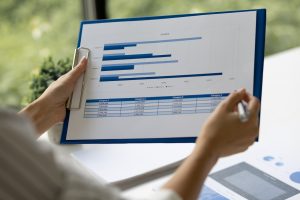Tracking daily expenses has emerged as a significant strategy for improving personal finance management. The approach not only helps to maintain budgetary discipline but also empowers individuals to make informed financial decisions based on real-time data.
Market Impact
According to a recent survey conducted by the National Endowment for Financial Education, approximately 60% of Americans do not maintain a detailed budget, leading to a cycle of unmonitored spending and financial instability. In contrast, those who engage in daily expense tracking report a 30% increase in savings within the first six months of implementation. This trend has resulted in a growing market for personal finance management tools. Apps like Mint, You Need a Budget (YNAB), and Personal Capital have seen an uptick in usage, with downloads surpassing 20 million across platforms in the past year alone.
Financial analysts assert that the rising popularity of these tools correlates with the fluctuating economy. With growing inflation rates, which reached a 40-year high of 9.1% in June 2022, consumers are increasingly seeking transparency in their spending habits. This need has further fueled the demand for services that facilitate real-time expense tracking.
Expert Opinion
Financial experts emphasize that daily expense tracking can lead to transformative financial behavior. Dr. Linda Tran, a financial psychologist, states, “When individuals track their expenses regularly, they cultivate a heightened awareness of their spending patterns. This awareness acts as a catalyst for change.” She notes that emotional connections to spending often cloud judgment, but systematic tracking can demystify these behaviors, leading to more rational financial decisions.
Furthermore, Jason Roberts, a certified financial planner, asserts that daily tracking is particularly beneficial during times of economic uncertainty. “With prices rising, knowing precisely where your money goes allows you to adjust your budget proactively instead of reactively, making it easier to withstand financial shocks,” says Roberts.
Background
The concept of tracking expenses is not new; however, the methods have evolved significantly over the past two decades. Traditionally, individuals relied on written logs or spreadsheets to record their expenses. The rise of personal finance applications has transformed this process, allowing users to automate tracking through integration with bank accounts and credit cards. According to a report from MarketsandMarkets, the personal finance software market is expected to reach $1.57 billion by 2025, growing at a CAGR of 7.3%.
The pandemic has also played a crucial role in changing consumer behavior. With many adjusting to remote work and reevaluating financial priorities, tracking daily expenses has become not just a practice for the financially savvy, but a necessity for many individuals seeking stability.
What’s Next
Looking ahead, financial experts predict a growing emphasis on personalized financial education as more people embrace the practice of daily expense tracking. The increased use of artificial intelligence in financial apps could further enhance this experience, providing tailored insights based on spending habits. As technology continues to evolve, applications will likely incorporate features that offer predictive analytics to help users plan for future expenses and savings goals.
In addition, the importance of financial literacy in schools is being increasingly recognized. Educators argue that integrating financial management into curricula could ensure that young adults enter the workforce equipped with essential skills such as budgeting and expense tracking, potentially leading to a more financially responsible generation.
While managing expenses daily may seem daunting at first, the long-term benefits are clear. For those looking to enhance their financial health, establishing a routine of tracking expenditures can lead to more informed decision-making and ultimately, greater monetary control. As personal finance continues to grow in complexity, the practice of consistent expense tracking is poised to become not just a trend, but a foundational habit for achieving financial well-being.







